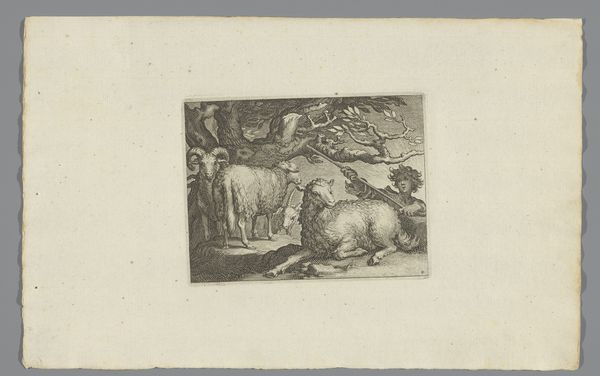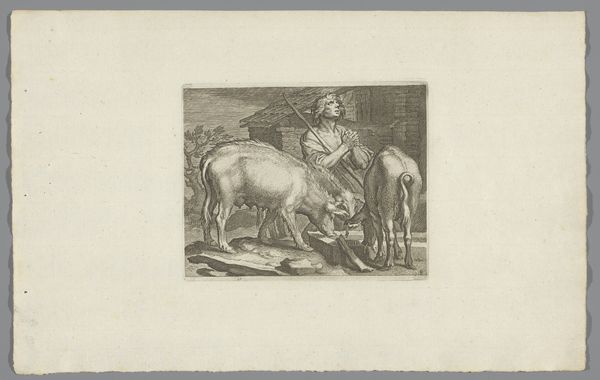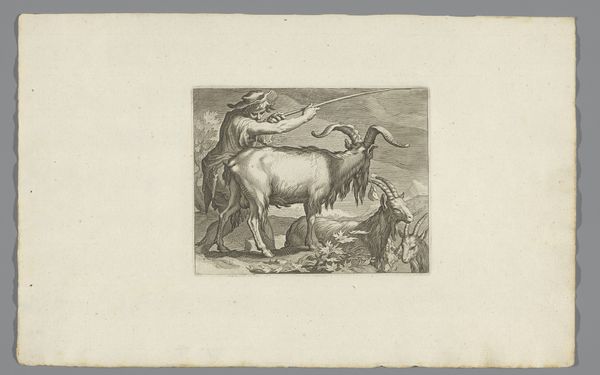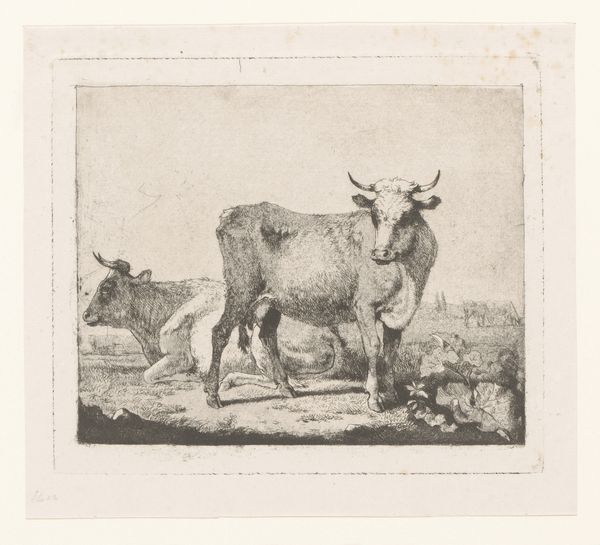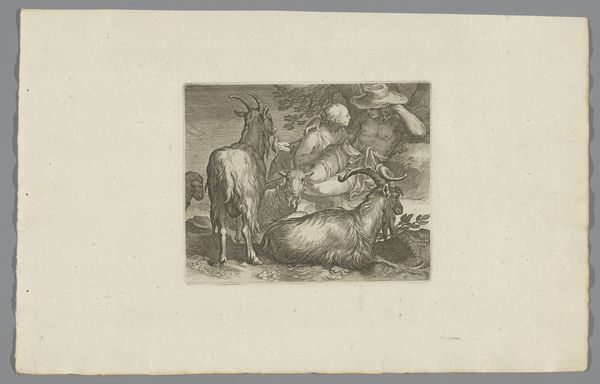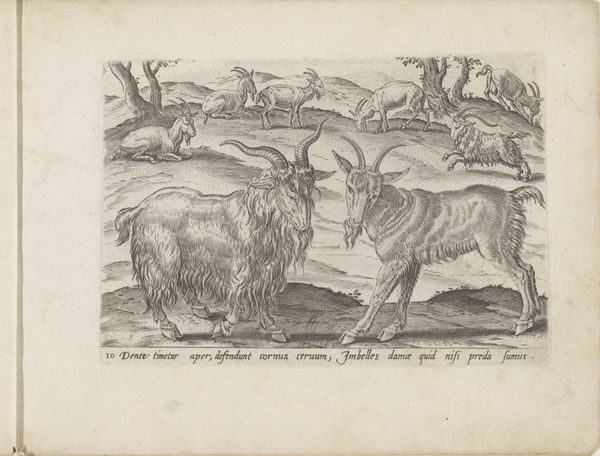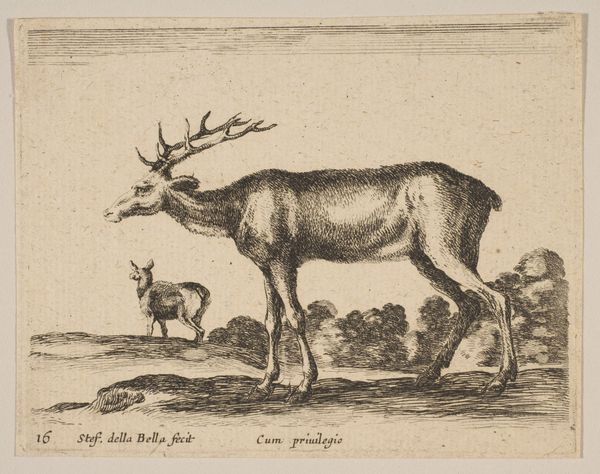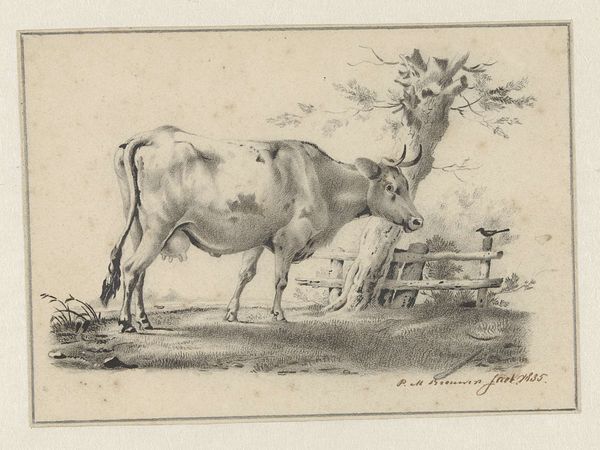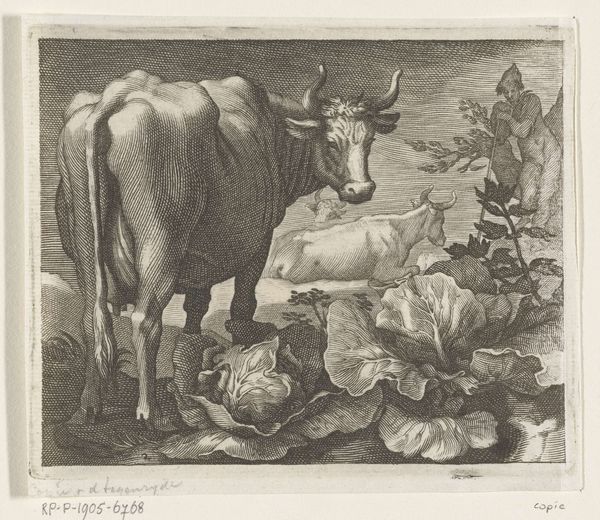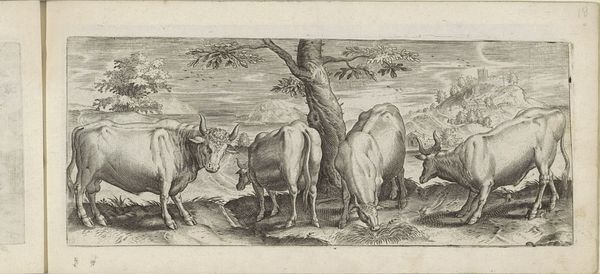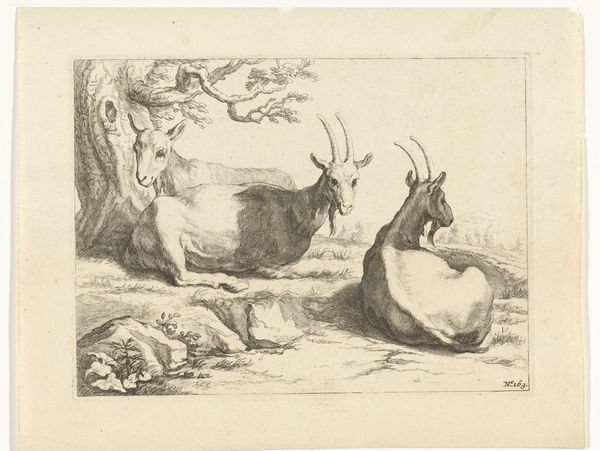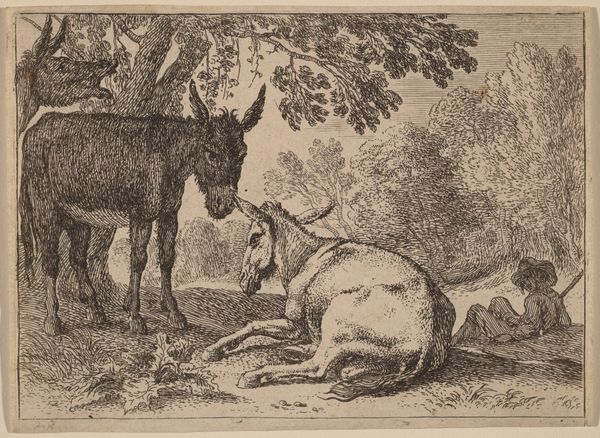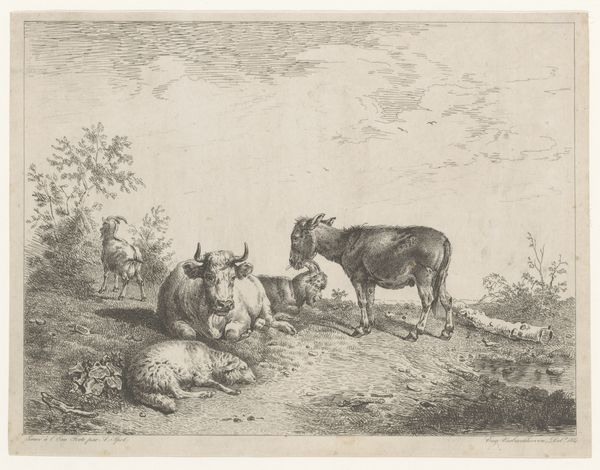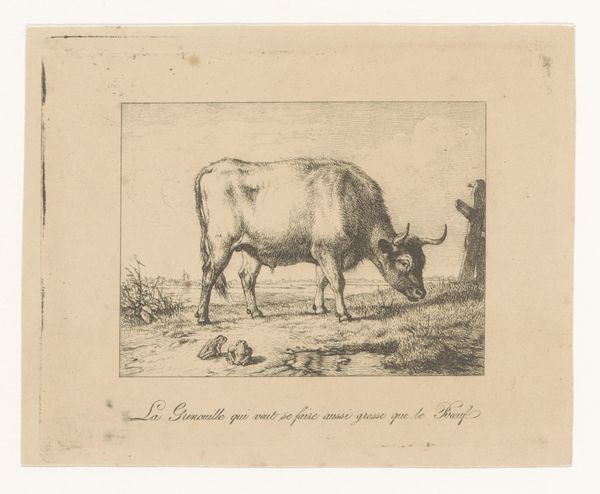
print, engraving
#
animal
#
dutch-golden-age
# print
#
landscape
#
figuration
#
engraving
#
realism
Dimensions: height 113 mm, width 144 mm
Copyright: Rijks Museum: Open Domain
Curator: This engraving, simply titled "Koeien," or "Cows," attributed to Boëtius Adamsz. Bolswert, was created sometime between 1611 and 1732 and now resides here at the Rijksmuseum. Editor: Well, my first impression is one of bucolic charm, almost like a scene from a well-to-do farm. The prominent placement of those rather magnificent cabbages, right alongside the cows, strikes me as wonderfully peculiar. Curator: The realism characteristic of the Dutch Golden Age is quite apparent, wouldn’t you agree? The intricate details, from the musculature of the cow to the veining on the cabbage leaves, reveal a sophisticated understanding of form and light. But I wonder, what statements were the producers of these kinds of artwork trying to make, and for whom? Editor: Perhaps it's a gentle nod to the economic prosperity of the era? Cattle representing wealth and sustenance, coupled with the humble cabbage signifying agricultural bounty and accessible food for growing urban populations. It's interesting that an engraving—a mechanically reproduced print—renders such traditionally “pastoral” subject matter. This potentially democratizes the imagery, making it accessible beyond the elite circles who would commission paintings. Curator: That's an interesting insight. But let’s remember, the engraver here, Bolswert, wasn't simply replicating reality. Look closely at the composition – the calculated placement of the cows relative to the cabbage, and the ambiguous landscape. It all speaks to a level of deliberate artistic creation that extends beyond mere documentary. Are these aesthetically valuable artistic prints, or just another iteration of agrarian material? Editor: I find it quite hard to choose one. The way this image reflects its cultural context certainly lends it a powerful historical dimension. And its existence also testifies to a system that was efficient enough to get it to our eyes today, whether as document or masterpiece. Curator: Well, regardless of any labels, it has undoubtedly left us with food for thought—quite literally, given the focus on the cows and those captivating cabbages! Editor: Indeed. A fascinating intersection of art, society, and the simple stuff of Dutch Golden Age life.
Comments
No comments
Be the first to comment and join the conversation on the ultimate creative platform.
